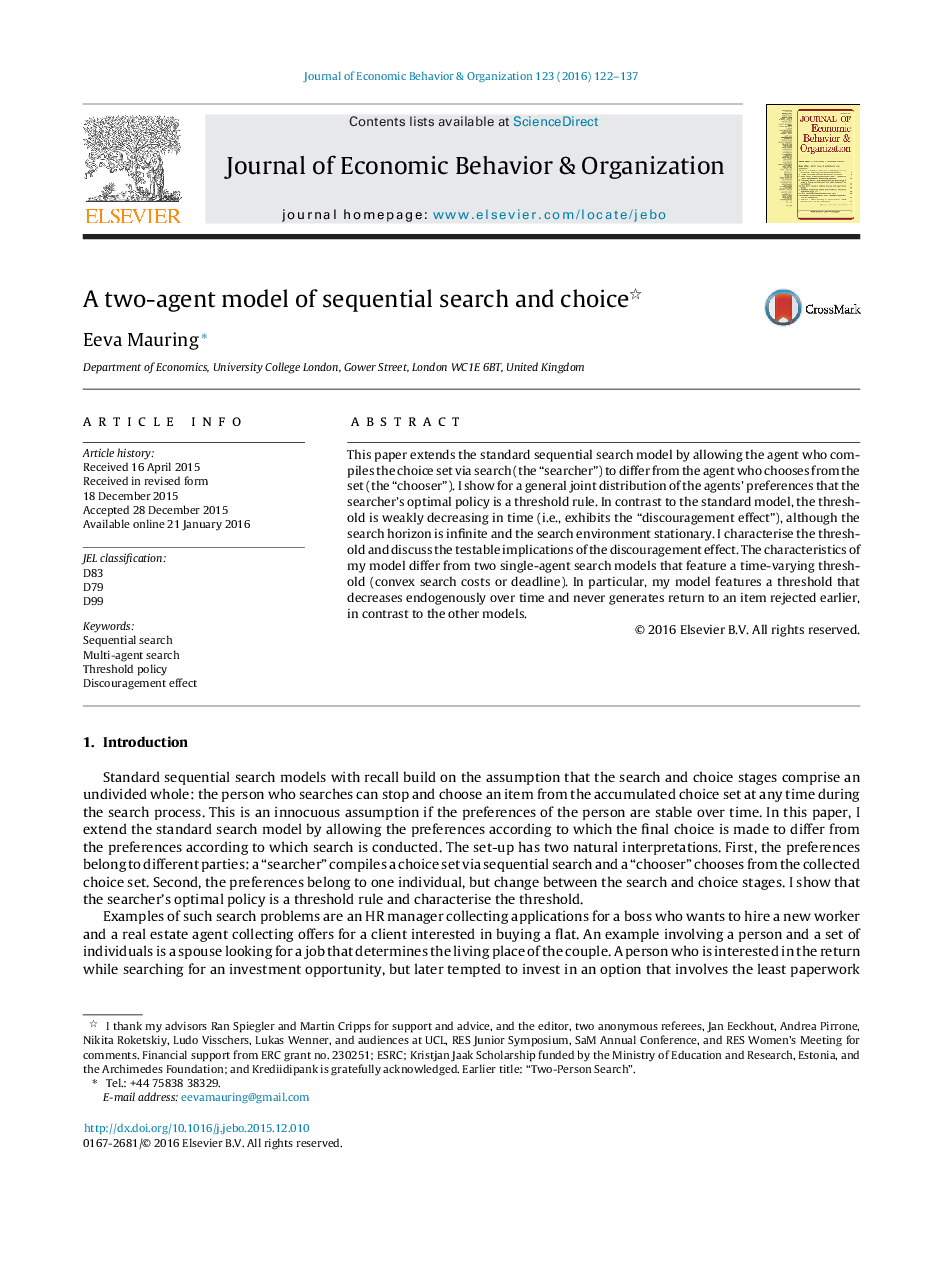| Article ID | Journal | Published Year | Pages | File Type |
|---|---|---|---|---|
| 883459 | Journal of Economic Behavior & Organization | 2016 | 16 Pages |
•I analyse a two-agent sequential search model.•An agent compiles the choice set via search and another chooses from the set.•I derive and characterise the searcher's optimal policy and discuss testable implications of the model.•The searcher's optimal policy is a threshold rule.•The threshold weakly decreases in time, i.e., exhibits the “discouragement effect”.
This paper extends the standard sequential search model by allowing the agent who compiles the choice set via search (the “searcher”) to differ from the agent who chooses from the set (the “chooser”). I show for a general joint distribution of the agents’ preferences that the searcher's optimal policy is a threshold rule. In contrast to the standard model, the threshold is weakly decreasing in time (i.e., exhibits the “discouragement effect”), although the search horizon is infinite and the search environment stationary. I characterise the threshold and discuss the testable implications of the discouragement effect. The characteristics of my model differ from two single-agent search models that feature a time-varying threshold (convex search costs or deadline). In particular, my model features a threshold that decreases endogenously over time and never generates return to an item rejected earlier, in contrast to the other models.
